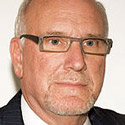Tracking the True Technology Cost of Compliance, Regulation & Risk
7/29/2014In financial services, technology costs are rising rapidly while revenues are declining. This makes for a bad business recipe.
Wall Street & Technology is part of the Informa Tech Division of Informa PLC
This site is operated by a business or businesses owned by Informa PLC and all copyright resides with them. Informa PLC's registered office is 5 Howick Place, London SW1P 1WG. Registered in England and Wales. Number 8860726.

Dr. Howard A. Rubin is a Professor Emeritus of Computer Science at Hunter College of the City University of New York, a MIT CISR Research Affiliate, a Gartner Senior Advisor, and a former Nolan Norton Research Fellow. He is the founder and CEO of Rubin Worldwide. Dr. Rubin is a pioneer in the area of technology economics and has built the world's largest database in the field consisting of business, national, and technology data. He is personally retained by many of the world's largest enterprises as a strategic advisor to provide them with continuous competitive calibration via benchmarking and to advise them on business-technology strategy and trends. His current portfolio of client companies in total generate more than $1.5T in revenue to the global economy annually and account for almost $100B in yearly Information Technology (IT) spending. Dr. Rubin has also worked directly with heads of state or their key ministers around the world in the development of national competitive technology strategies - Canada, India, the Philippines, South Africa, and in the United States with former President Clinton. He currently is an informal advisor assisting President Obama's Council on Job Creation and Competitiveness. Dr. Rubin possesses a Ph.D. from the City University of New York in Computer Science and Oceanography. Outside the world of technology Dr. Rubin is Chairman of the Board of Riverkeeper, a member of the Clinton Global Initiative, a Leadership Council member of the RFK Foundation, a major support of student development programs at the Tribeca Film Institute, and a supporter of the Rainforest Foundation.
 Exclusive: Inside the GETCO Execution Services Trading Floor
Advanced Trading takes you on an exclusive tour of the New York trading floor of GETCO Execution Services, the solutions arm of GETCO.
Exclusive: Inside the GETCO Execution Services Trading Floor
Advanced Trading takes you on an exclusive tour of the New York trading floor of GETCO Execution Services, the solutions arm of GETCO.
